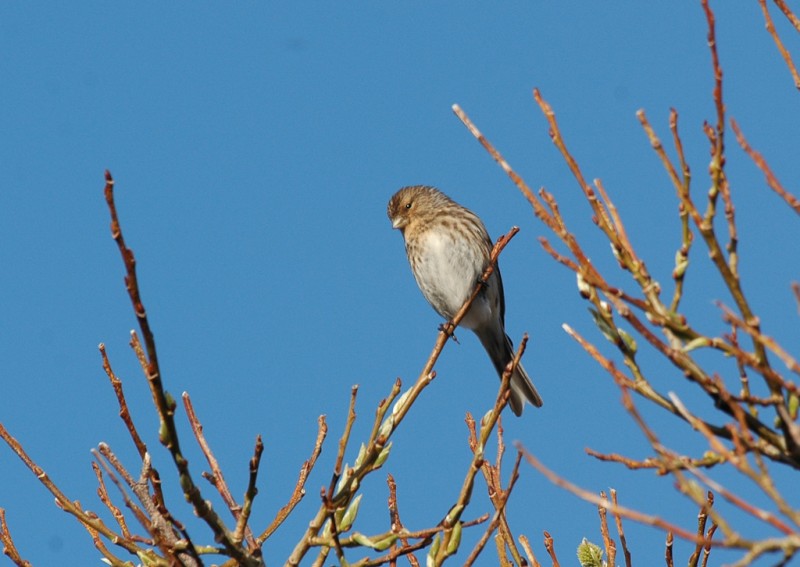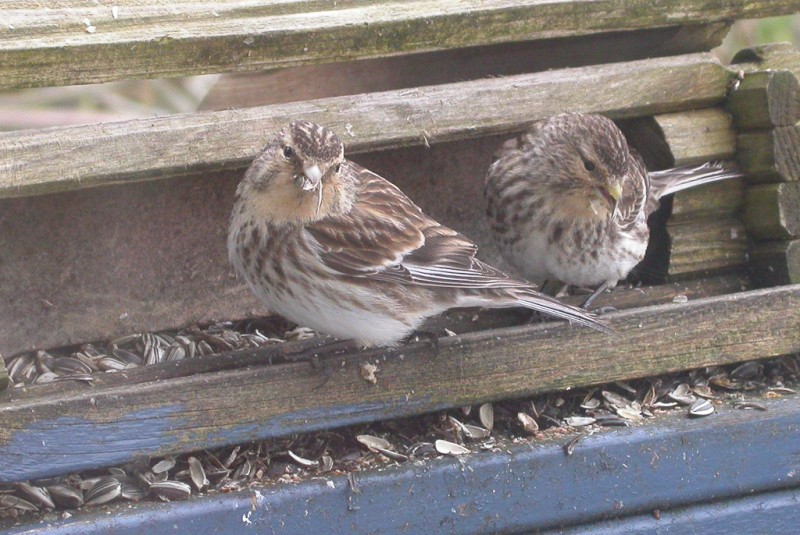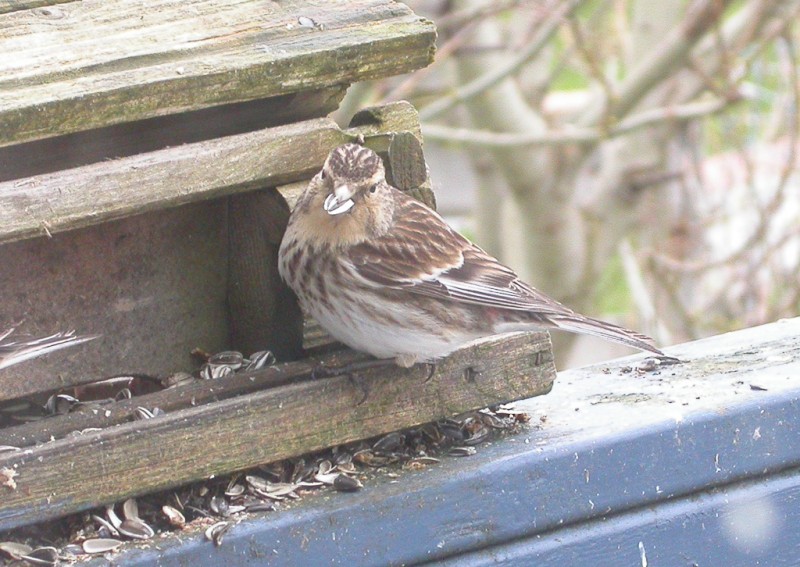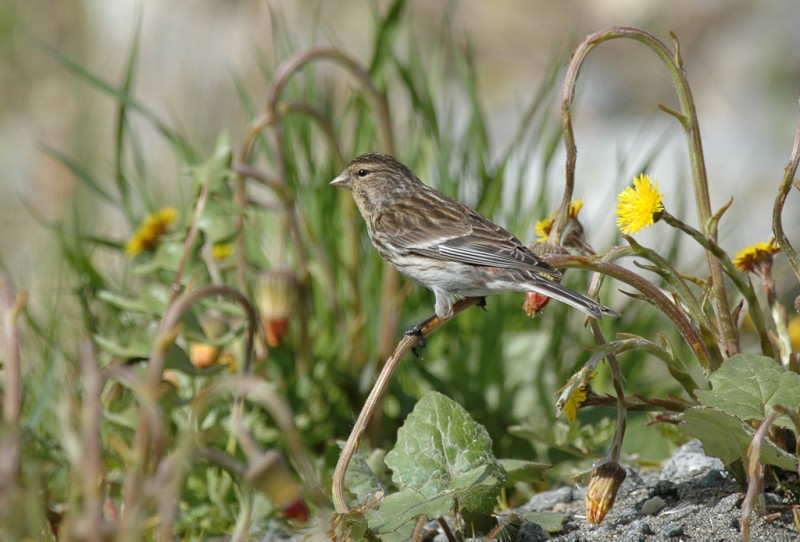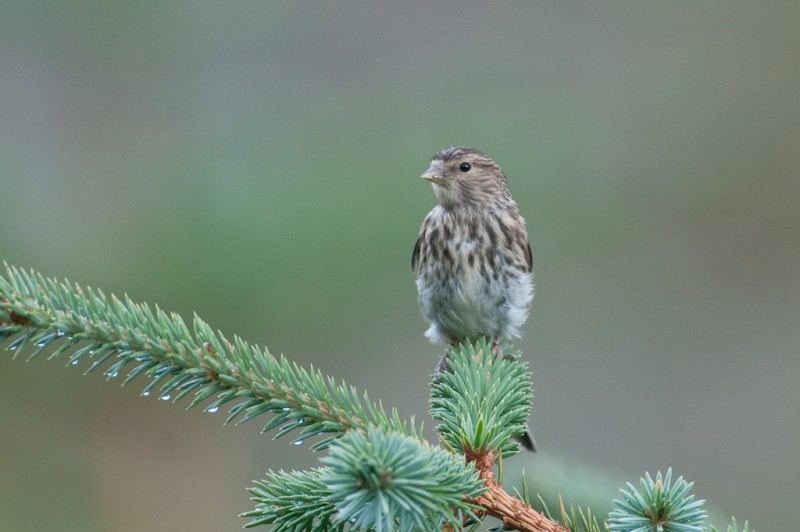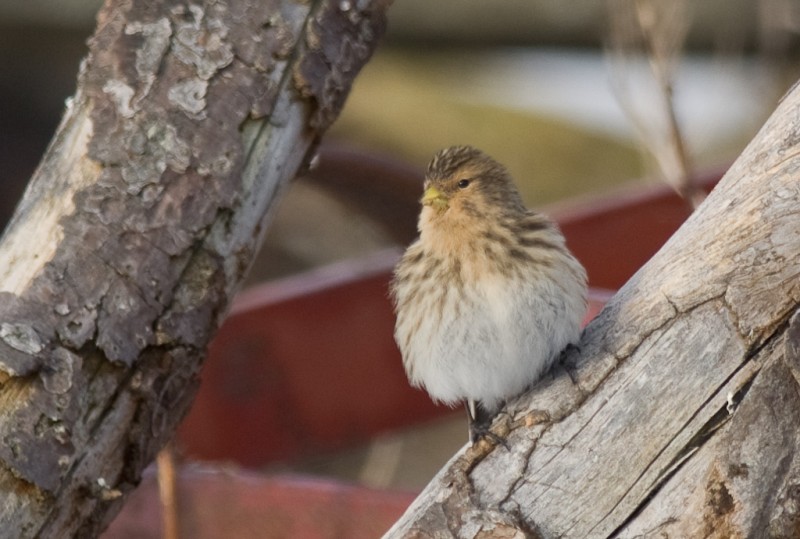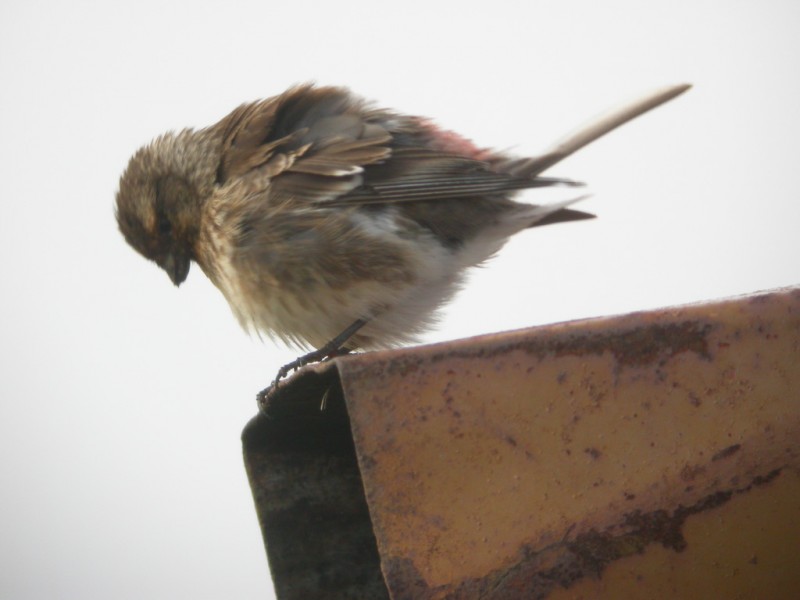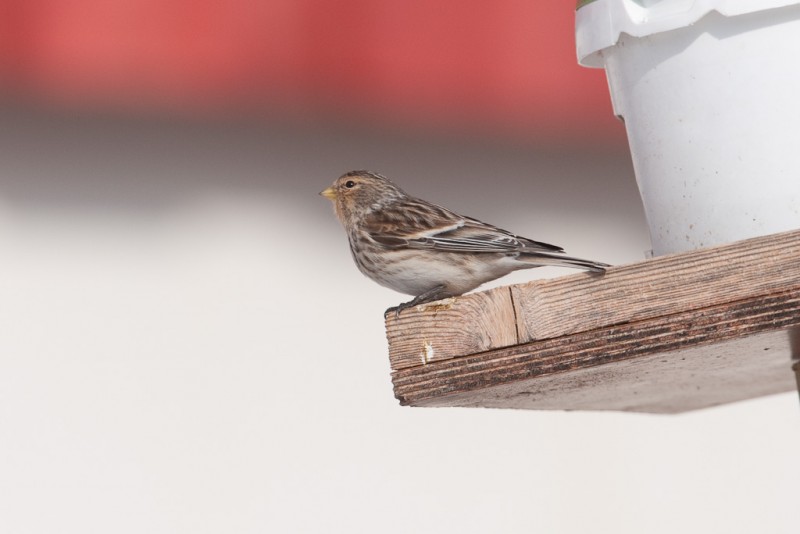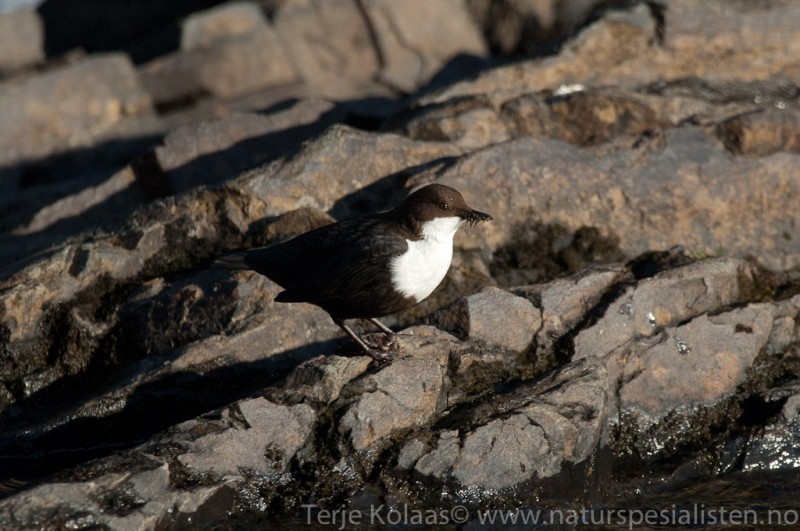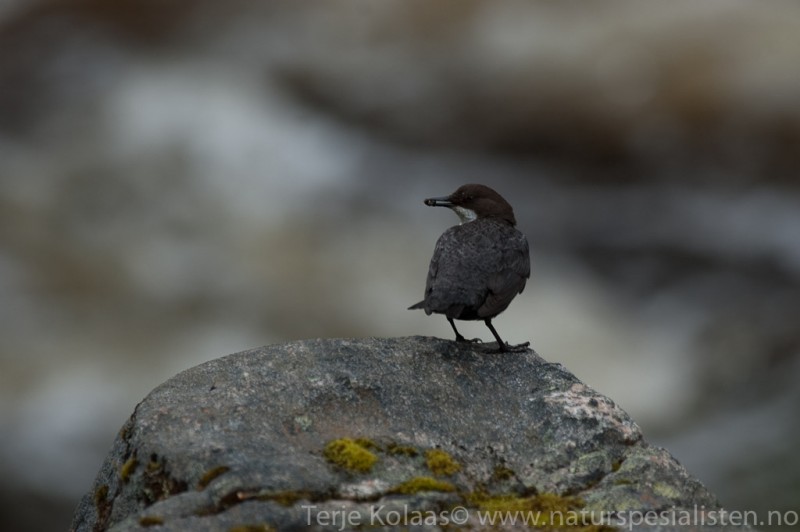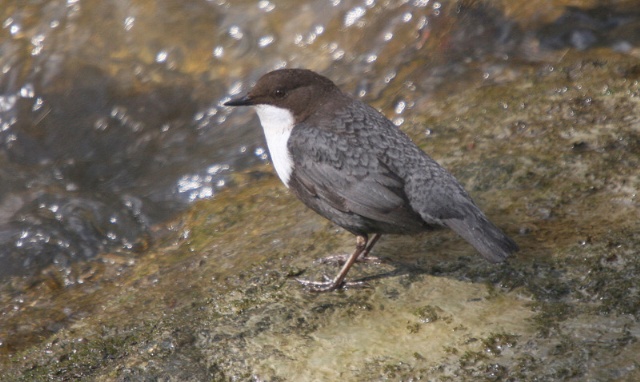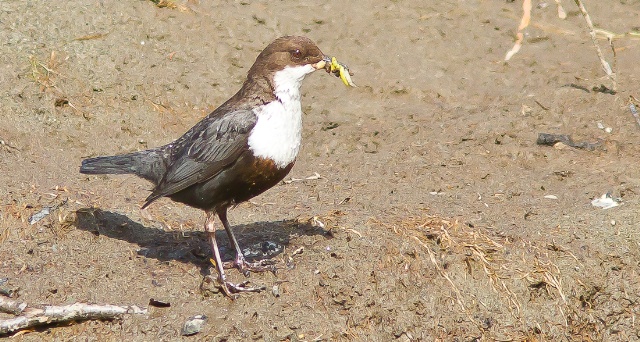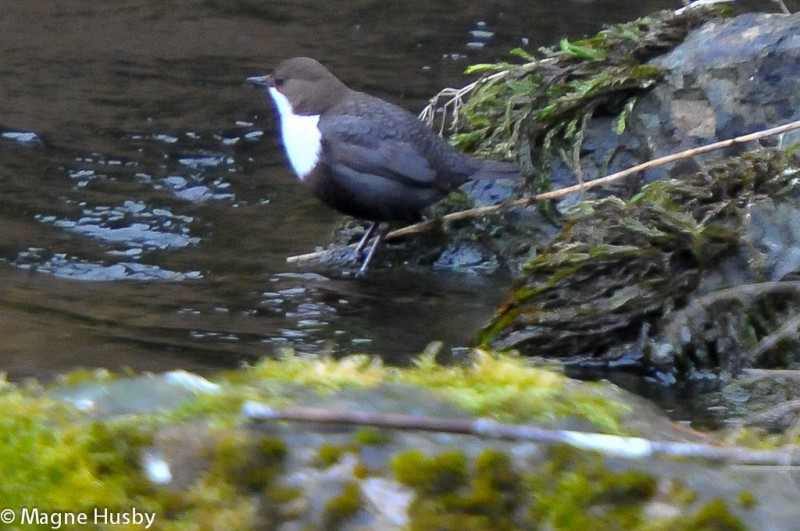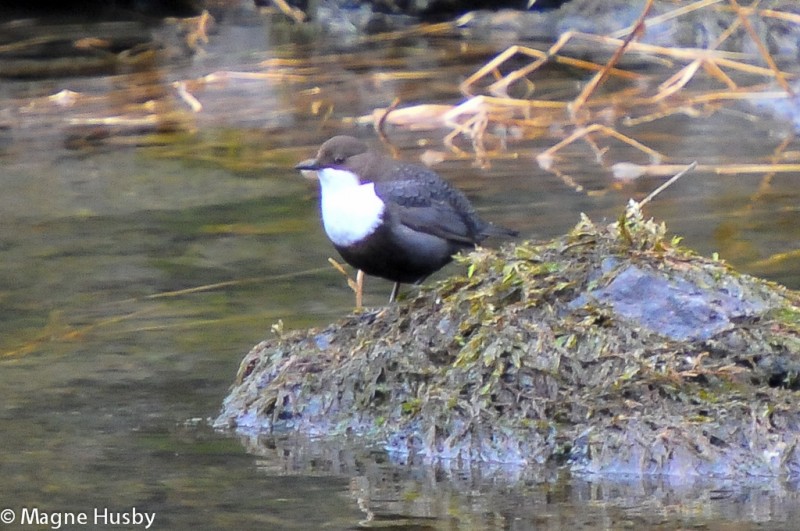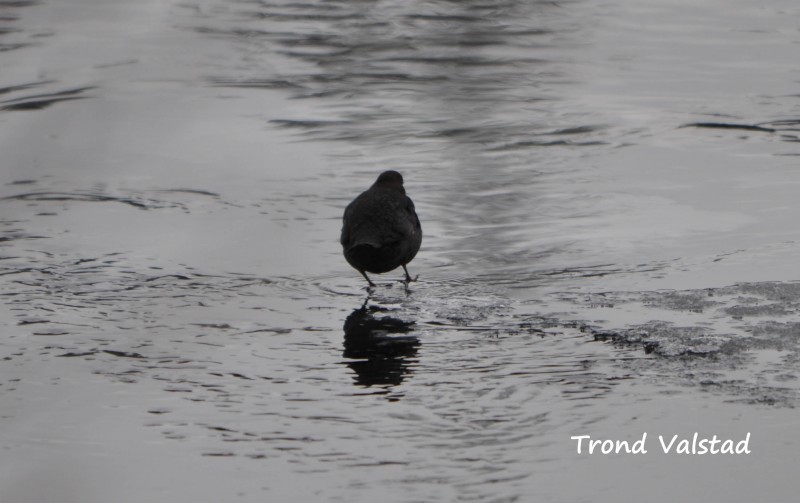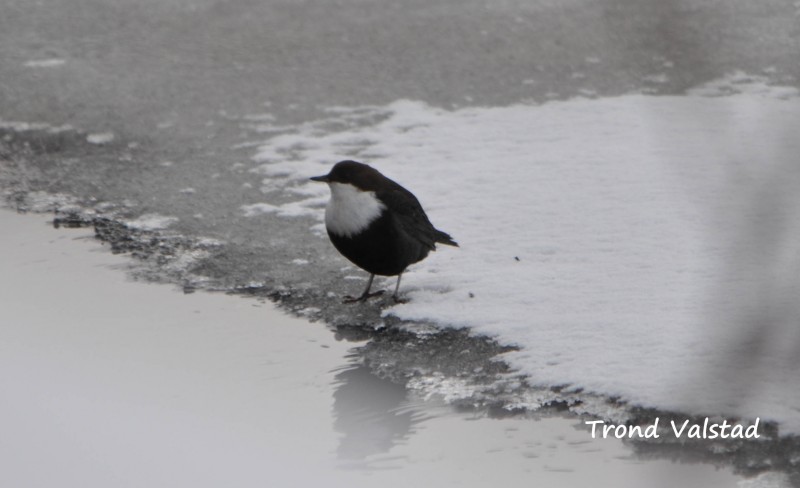Twite (Linaria flavirostris)
White-throated Dipper (Cinclus cinclus)
Relatively characterless plumage. Differs from Linnet in warmer, yellowish base colour, yellow bill (grey in breeding plumage), bolder wing-bars and coarsely streaked back. Male with pinkish rump. Told from Redpoll by white base of primaries (like Linnet), and missing red and black head markings. Slightly longer tail and shorter bill than Linnet.
Sound:Contact call a short "chep" given in series, similar to Brambling, Redpoll and Linnet. Easiest identified by other distinct call given both in flight and on ground; a peculiar, nasal and twangy "twite", from which the species name originates. Each "twite" gives the impression of the pitch being "out of control", like cartoon-like sound-effects. Song a rapid alternation of trills and nasal "twites", given in an even tempo with phrases of variable length. Lacks Linnet's frequent inclusion of "gig-gig" sounds.
Song:
Distribution:
Wikipedia: map (se also Xeno-canto below)
Ecology:Birdlife ecology
Links:
Observation.org Latest observations
Image search Flickr NB! May give other species
CCUnmistakable in its habitat. Found by waterfalls and fast running streams. A compact and bulky bird with short wings and tail. Plumage black with brownish head (some with brown belly). Most conspicuous feature is the shiny white throat and chest. Juveniles grey instead of black, with dark barring. Constantly bobbing up and down with drooping wings when perched. White eyelid clearly visible when blinking.
Sound:Contact call a short, metallic and explosive "zrreet", often betraying its presence perched among boulders or when flying up and down a stream. Song a mid tempo, staccato improvisation on contact call-like sounds. Not unlike a budgerigar. Both sexes sing, the female less melodic and more staccato than the male.
Song:
Distribution:
Wikipedia: map (se also Xeno-canto below)
Ecology:Birdlife ecology
Links:
Observation.org Latest observations
Image search Flickr NB! May give other species
CC
 English
English Albanian
Albanian
 Armenian
Armenian
 Bulgarian
Bulgarian
 Catalan
Catalan
 Croatian
Croatian
 Czech
Czech
 Danish
Danish
 Dutch
Dutch
 Finnish
Finnish
 French
French
 Georgian
Georgian
 German
German
 Greek
Greek
 Hungarian
Hungarian
 Italian
Italian
 Latvian
Latvian
 Lithuanian
Lithuanian
 Macedonian
Macedonian
 Norwegian
Norwegian
 Polish
Polish
 Portuguese
Portuguese
 Romanian
Romanian
 Russian
Russian
 Sami : Lule sami
Sami : Lule sami
 Sami : North sami
Sami : North sami
 Sami : South sami
Sami : South sami
 Scientific names
Scientific names
 Serbian
Serbian
 Spanish
Spanish
 Swedish
Swedish
 Ukrainian
Ukrainian


